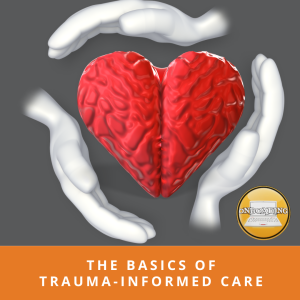The Basics of Trauma-Informed Care: Onboarding NEW

Available Summer ’24
Logistics
Type: Self-Paced / Onboarding
Time to Complete: 90 minutes
Target Audience: This modules is appropriate for frontline workers, case managers, leaders, and anyone seeking to deepen their understanding of trauma-informed approaches in homelessness services.
Components
- Videos
- Text
- Exercises
- Knowledge Checks
- Final Assessment
- Course Evaluation
- Completion Certificate
Description
In today’s world, trauma has affected almost everyone directly or indirectly. Often these trauma survivors are unintentionally re-victimized by well-meaning people who just don’t know how to minimize or eliminate further harm. The Homeless Hub tells us that, “Trauma Informed Care (TIC) is an approach that embraces an understanding of trauma at every step of service delivery. This model requires a compassionate and understanding attitude, in order to address the intersecting effects that trauma can have on people’s lives. It seeks to create a culture of nonviolence, learning, and collaboration in all aspects of treatment, while also recognizing the physical, psychological and emotional importance of clients’ and providers’ safety. It is an approach that is incorporated into the structure of a variety of practices, including housing, primary care, mental health, and addiction services. The aim is to provide services in ways that are appropriate and welcoming for those who may have been affected by trauma.
This module offers basic trauma-informed care knowledge and skills for those working with individuals experiencing homelessness. Delve into the fundamentals of trauma, learn how to recognize signs of trauma, and explore strategies for creating supportive environments and delivering trauma-informed services. Gain a deeper understanding of trauma and its effects on people facing homelessness. Learn how to use this knowledge to make services more accessible to those who need them. This module equips you with practical tools and resources to recognize trauma, adjust your approach, and create welcoming environments for individuals seeking support.
Learning Objectives
- Gain an understanding of trauma and its prevalence among individuals experiencing homelessness.
- Examine the principles of trauma-informed care and their significance in addressing the needs of homeless populations.
- Recognize a wide range of physical, emotional, and behavioral signs of trauma in clients experiencing homelessness.
- Explore strategies for creating environments within homeless services that prioritize trauma-informed care and promote safety, trust, and empowerment.
